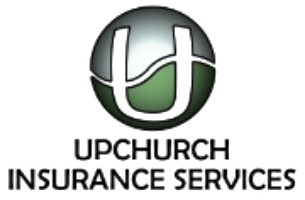What is Medicare Advantage?
Medicare advantage plans are an alternative to traditional Medicare. The federal government pays private health insurance companies to offer insurance plans that have benefits that are at least as good as the payment models offered under traditional Medicare.
The ‘advantages’ part of these plans may include value-added services that are not included under traditional Medicare, such as: preventive dental and vision, fitness/gym reimbursements, discounts on over-the-counter items and 24-hour nurse lines.
Medicare Advantage is a managed care plan that charges low monthly premiums in exchange for relatively strict local networks, prior authorizations/referrals requirements and copayments that come out of your pocket whenever a medical service is utilized. (You must still pay your monthly Medicare Part B premium.) Many of these plans do include prescription drug coverage.
Another advantage of a Medicare Advantage plan over traditional Medicare…the protection provided by an annual out-of-pocket maximum. (The current national average is $5400/year*). Traditional Medicare does not have any annual out-of-pocket limits.
According to the Kaiser Foundation, in 2015, 17.6 million or roughly 31% of all Medicare beneficiaries are now in Medicare Advantage plans.*
Which is a Better Deal – Medicare Supplement or Advantage?
A cheap premium should not be the only factor considered when deciding on your health coverage. Whether Medicare Advantage is a better deal than original Medicare + a Medicare Supplement/Part D Plan depends on a host of individual factors, such as your comfort level with managed care and your willingness to trade lower up-front premiums while you are healthy for the risk of higher out-of-pocket costs if you get seriously ill.
Mary Ashkar, Staff Attorney for the Center for Medicare Advocacy, stated that, "The best candidate for Medicare Advantage is someone who's healthy. We see trouble when someone gets sick." **
Education has become the best protection I can provide my Medicare Advantage clients. The biggest issue my office faces with these plans has to do with skilled nursing facilities/nursing homes.
Medicare Advantage plans are designed to help curb unnecessary medical spending and even fraud through more extensive oversight and review than original Medicare. Unfortunately, this creates a system of checks, balances, and paperwork that many hospital and nursing home administrators are not fond of.
Here are some recent scenarios involving our clients and local nursing facility admittances:
1. Initial authorizations to be admitted into a nursing home are sometimes denied. Normally, the denial can be resolved by one phone call from the physician who has referred you for skilled care. If you get a denial, make sure the referring physician/hospital is doing the leg work needed to get it fixed for you.
2. The nursing home recommended that the Medicare Advantage member drop their plan and go back on traditional Medicare and buy a supplement. This is NOT sound advice for many reasons! While the paperwork is easier for the nursing home under traditional Medicare; our clients usually find that their out of pocket expenses are much higher on Medicare alone. Remember, Medicare Supplements are medically underwritten. By the time you are sick enough to need skilled care at a nursing facility; you are probably too sick to qualify for a Medicare Supplement. This lack of knowledge by nursing home staff has cost my trusting clients thousands of dollars.
3. Networks also apply to skilled nursing centers, and many times the nursing home that is closest to your home may not be the one that is in-network with your plan. The additional mileage does cause added stress to caretakers who drive multiple times a day to see their loved ones. If you want to be free to select a nursing home, there are short-term nursing home plans that can be purchased to ensure you can go where you want to go.
4. Just remember, the best scenario for any nursing home is someone who is ‘self-pay.’ This means that 100% of the expenses are being billed to you directly. Before ever agreeing to this arrangement, please call my office to be sure that your Medicare Advantage plan and skilled nursing facility has coordinated your care and benefits in a manner that is of the highest benefit to YOU.
Overall, the feedback from our Medicare Advantage clients is that they are satisfied with their plan. However, waiting until an unexpected hospitalization, rehabilitation, or cancer diagnosis to fully understand the potential costs involved with these plans does not usually make for a good outcome.
An option that could fill the gaps in Medicare Advantage coverage is through reasonably priced insurance policies for short-term nursing home stays and hospitalization. Upchurch Insurance Services can provide a quote to you if you are interested in exploring whether this option could save you a lot of worry and money in the future.
The Medicare Annual Enrollment Period is from October 15th through December 7th. It is during this time that Medicare Advantage plan members will have the opportunity to thoroughly review their plan’s annual notice of changes (benefit and cost changes); as well as move to a new plan or back to original Medicare.
Cited Sources:
*http://kff.org/medicare/fact-sheet/medicare-advantage/
**http://www.foxbusiness.com/features/2011/08/31/six-questions-about-medicare-advantage-plans.html

